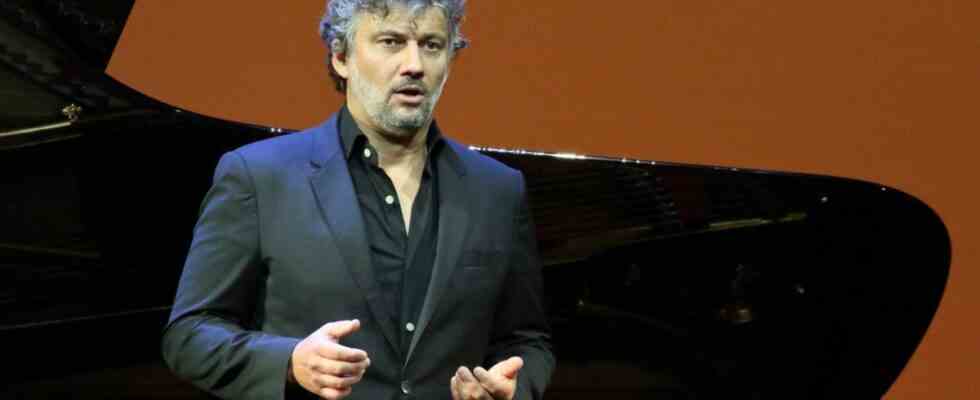The shutter speeds during the hard lockdown have driven many great operatic voices to the song, to the small form, to the Biedermeier house music setting, so to speak. Well, you certainly don’t have to take someone like Jonas Kaufmann to see Schubert, Schumann, Liszt or Mahler. He has always liked to let his heroic tenor cheat on him, and he regularly proselytizes him for the delicate art of singing between resounding Wagner, Verdi, Verismo albums or horrible Christmas song junk. For vocal hygiene, as he says, but above all out of a great passion. And because he has had a kindred spirit in Helmut Deutsch for more than 30 years. Even if the two maintain a somehow telepathic connection, Kaufmann had to ask his old piano professor to his musical home office in 2020 to record “Blessed Hour”, probably their most personal songbook to date, which they are now leafing through in the State Opera.
It’s never about showmanship
The two are euphorically welcomed in the almost sold-out National Theater. The relief is atmospherically tangible, as Kaufmann recently had to cancel performances in “Cavalleria Rusticana” and “Pagliacci” at the Royal Opera House due to a Covid disease and “the effects on his voice”. Apart from a few clearing of the throat, tiny cloudiness in the first song “Adelaide” there is nothing more to be heard. Beethoven’s gem sets the tone for everything that follows; there the waves roar, nightingales whistle, lyrical egos plead for the unattainable, sometimes to the grave. Deutsch called an album “full of encores” “Selige hour”, which makes up the first part of the concert. Great emotion is condensed there in miniatures: Schubert’s “The Musensohn”, Schumann’s “Widmung”, Brahms “Forest Loneliness”, but also discoveries such as Zemlinsky’s “Blessed Hour”. Kaufmann is not someone who lectures something like that with academic distance. Song purists may criticize his piano technique, when the mezza-voce occasionally slips into the barely audible, when vowels stretch out nasally when opening, or the tenorissimo lets the sound level with operatic Gradezza sometimes swing to the point of discomfort. But it’s never about sensationalism, if you listen closely you will not only discover great sensitivity, but also unrelenting precision in singing.
After the break then Liszt, from “Freudvoll und sorrowful”, the second lockdown album by the two. All the emotions again, from the angry whip cracker “My songs are poisoned” to the fifth encore, Brahms’ lullaby, breathed out as a bouncer because the enraptured audience just doesn’t want to let them go: “Guten Abend, gut’ Nacht”.

